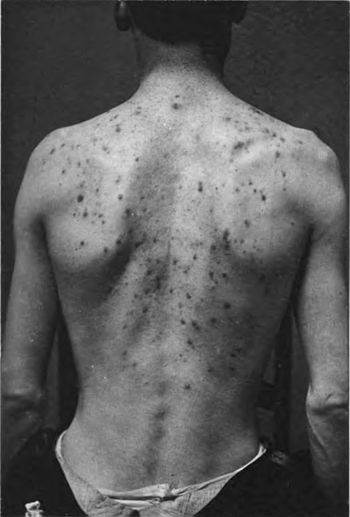 |
| Acne vulgaris (Photo credit: Wikipedia) |
A pimple, or acne as some people call it, is a dreaded red, swollen bump in the face. Nobody is spared from having it. Male or female, American, Chinese or Puerto Rican, they all have gotten it at some points of their lives and may even still have it. It is like a universal language; it is like a right of passage in a person’s life. Acne is a result of the hormones action on the skin's oil glands (the sebaceous gland) which leads to clogged pores and the outbreak of lesions like pimples, blemishes or acne. Acne commonly occurs in the neck, face, back, shoulders and chest because the sebaceous glands are most abundant in these locations. But the important question we should be asking to be able to avoid this dreaded “disease” is, “What causes this pain in the neck called acne?”
Unfortunately, the causes of acne cannot really be determined (unless your parents or their parents are acne infested too then there’s a big, big chance you’ll be called acne face by your peers and classmates) thus the acne myths are born! These myths claim to be the cause of acne. We shall enumerate them here.
Acne Myth Number 1
Acne is caused by not washing your face often and not scrubbing it hard enough. Many believed that acne is caused by dirt and dust in the face and by washing your face two-three even four times a day or even by scrubbing your face hard can prevent acne. Wrong, wrong, wrong! It is true that dirt and dust are unsightly to the face and washing the face is the way to eradicate them but washing often can actually irritate the skin more. Washing should not be done more than twice a day. More than twice is enough to strip the face of its natural oils making it dry. Also, scrubbing can cause inflammations. Washing the face should be done as gently as possible with the gentlest facial scrub.
Acne Myth Number 2
Improper Diet can cause acne. Certain foods that are oily like French fries and junk food can cause acne to erupt in our face. But scientific studies have not discovered any connection between these two. So this means that food does not cause acne. Though a proper and healthy diet is always good for our system, eating like a pig won’t make pimples a permanent resident in your face. So feel free to eat your favorite Lay’s, French fries and chocolates anytime.
Acne Myth Number 3
When you’re stressed acne tends to pop on your face like popcorn pops from a kernel. Not true. Stress is a part of our daily lives and believes it or not it is not a contributing factor to the acne residing in your face. Only severe stress treated by the doctor MAY cause acne to erupt only as a side effect of the drugs a person may be taking. If this is the case, consult your doctor immediately.









